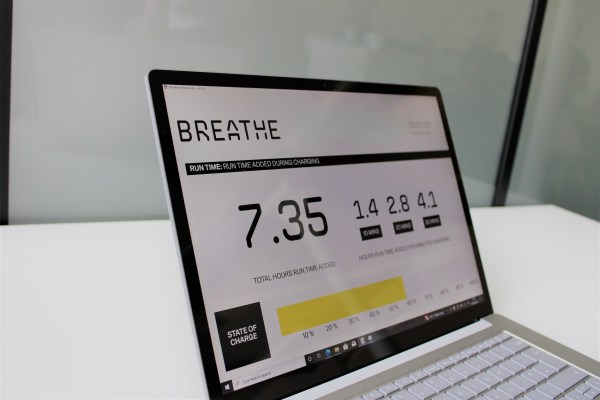[ad_1]

Lithium-ion batteries have been making steady progress over the past decade, boosting energy density while also falling in price. But Ian Campbell thinks that today’s designs, no matter how advanced, are still leaving something on the table.
“There’s a gobsmackingly enormous amount of performance still to be unlocked from existing materials and chemistries,” he told TechCrunch+.
Campbell has spent much of the last decade studying how batteries charge and why they fail, two characteristics of every battery that are tightly bound. In the process, he and his colleagues at Breathe Battery Technologies have developed a bit of software that can be slipped into just about any lithium-ion battery in use today, endowing it with either faster charging speeds or greater longevity.
The startup offers two different products, Charge and Life. The former reduces charging times by a significant measure. The company’s code shaved 27% off the 0% to 80% charging time for a standard battery type used in warehouse robots, for example. The latter improves the longevity of the battery. In the case of the Oppo Reno8 Series phones, the company says its software significantly reduces battery degradation, hitting 80% capacity after four years instead of two.
“Customers get a better, longer-lasting laptop or car. If you’re the OEM that sells it to us, you have a more sustainable product, you have better warrantability, you have less balance sheet risk,” said Campbell, who is co-founder and CEO at Breathe.
The real prize is the automotive sector. Already, 60% of the lithium-ion batteries produced in the world are destined for electric vehicles, according to Allied Market Research. In the coming years, that share is likely to grow further even as the sector continues to expand rapidly.
While Campbell couldn’t disclose any automotive customers, he did say that conversations with those companies were “very far along.” “We’re making a lot of headway in automotive, and I’m very excited.”
Breathe recently closed a competitive $10 million Series A led by Lowercarbon Capital with participation from Speedinvest, TechCrunch+ has exclusively learned.
The startup’s software can run on industry standard microcontrollers that oversee the charging and discharging of a battery in an EV or an electronic device.
[ad_2]
techcrunch.com




